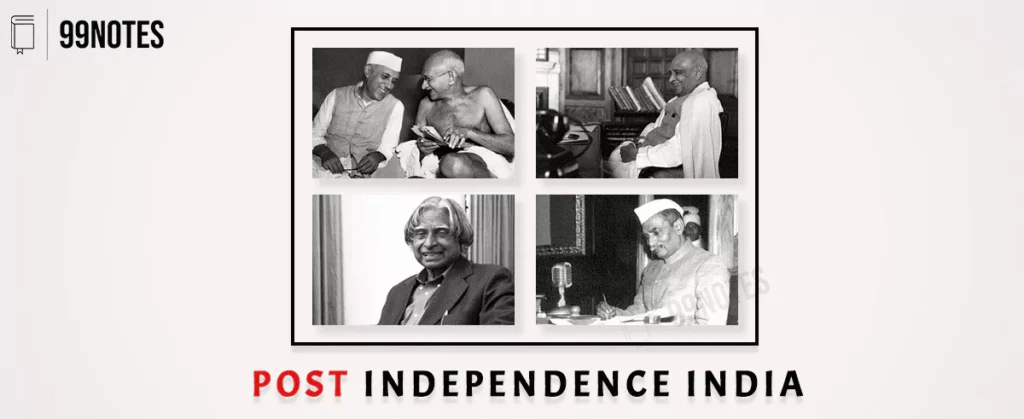
Post Independence INDIA UPSC Notes Free Download
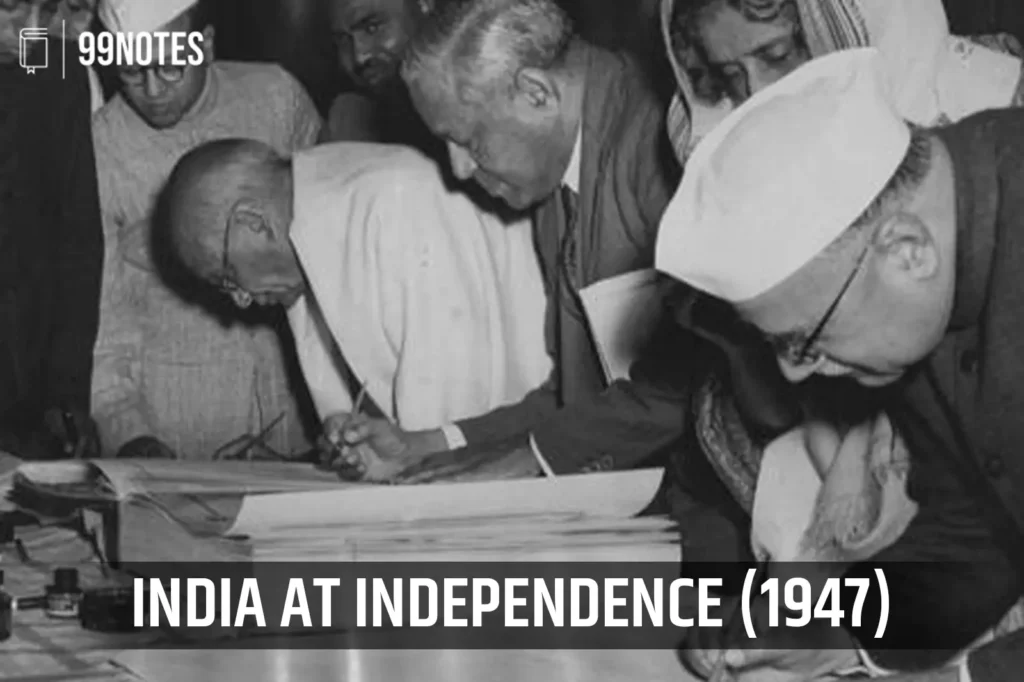
INDIA AT INDEPENDENCE (1947)
India’s struggle for independence was marked by decades of resistance against British colonial rule. The Revolt of 1857 is considered the first significant uprising against British rule, followed by a series of movements led by the Indian National Congress (INC)
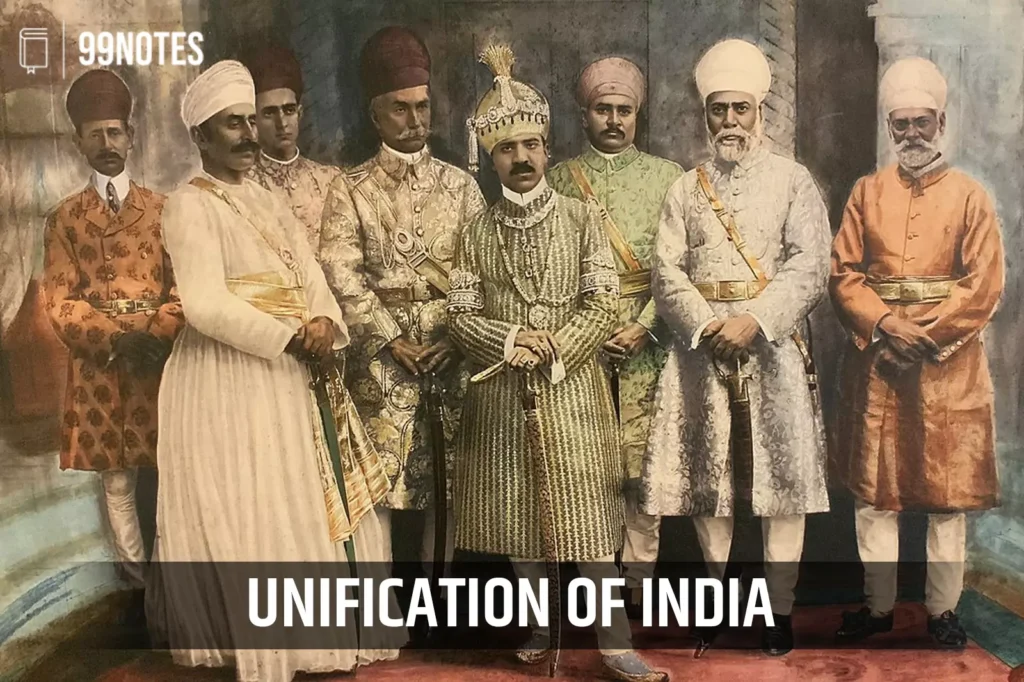
UNIFICATION OF INDIA
Indian unification in the post-independence context refers to the complex process of politically, territorially, and socially integrating the newly independent and diverse Indian state. When India gained independence on August 15, 1947 it faced immense challenges in consolidating a nation
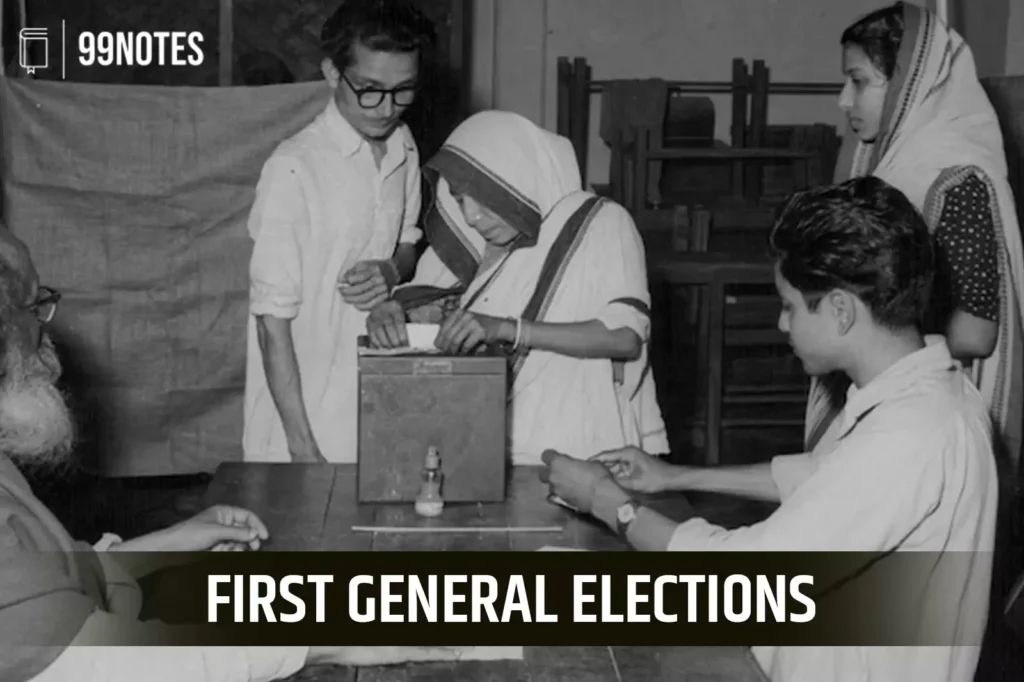
FIRST GENERAL ELECTIONS
India’s transition to democracy post-independence marked a significant political experiment in the world’s history. After gaining independence from British rule on August 15, 1947, India faced the daunting task of establishing a stable political system
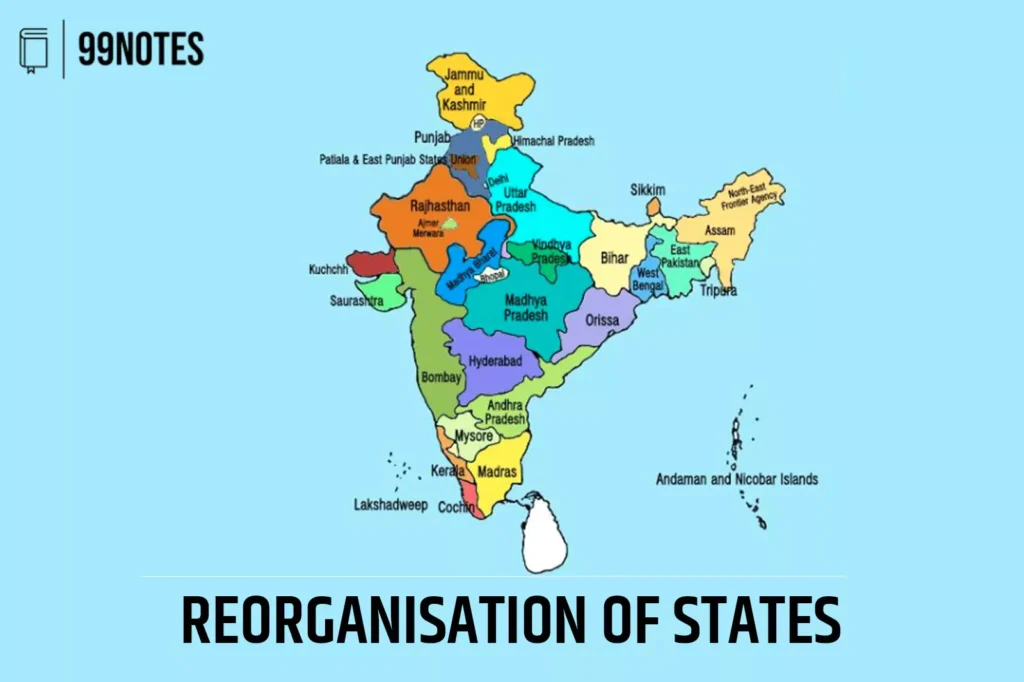
REORGANISATION OF STATES
At the time of India’s independence in 1947, the newly formed nation inherited a fragmented administrative structure consisting of British provinces and princely states. These divisions were largely arbitrary and did not reflect the linguistic, cultural
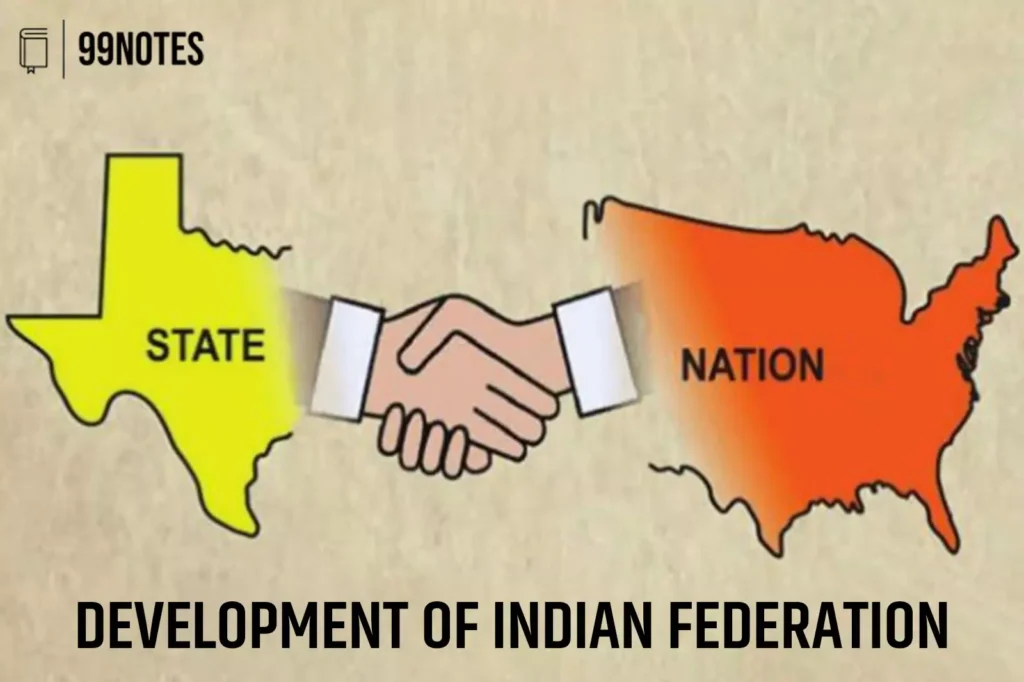
DEVELOPMENT OF INDIAN FEDERATION
Federalism is defined as a political structure where power is constitutionally divided between the central government and regional governments, with each level having distinct responsibilities and authority.
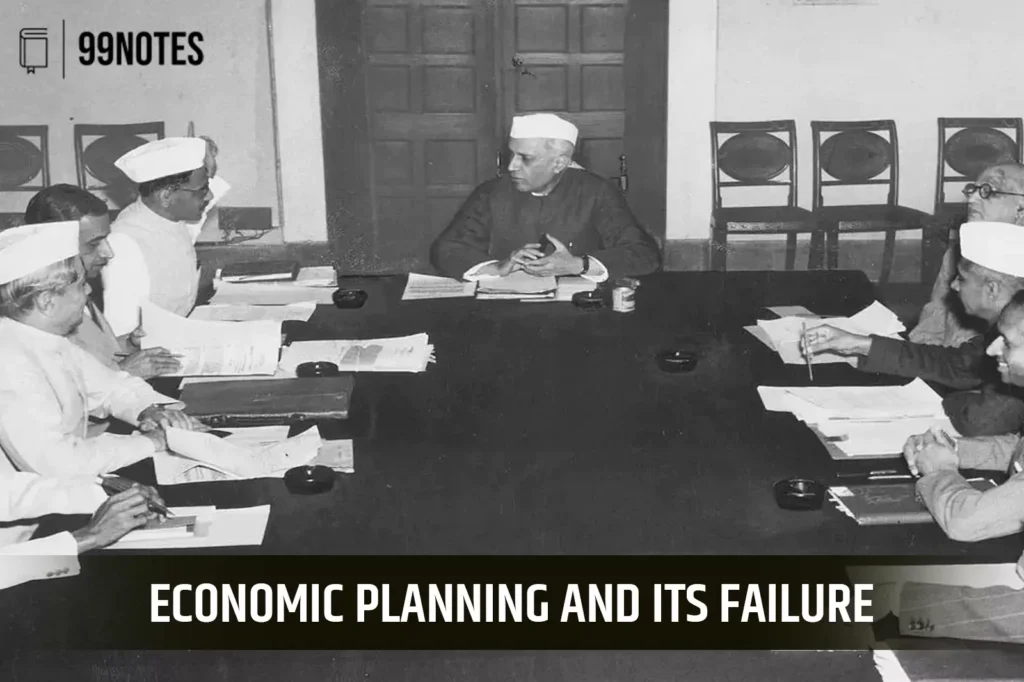
ECONOMIC PLANNING AND ITS FAILURE
Economic planning refers to a systematic and organized effort by the government to allocate resources, set production targets, and shape economic policies to achieve specific national goals
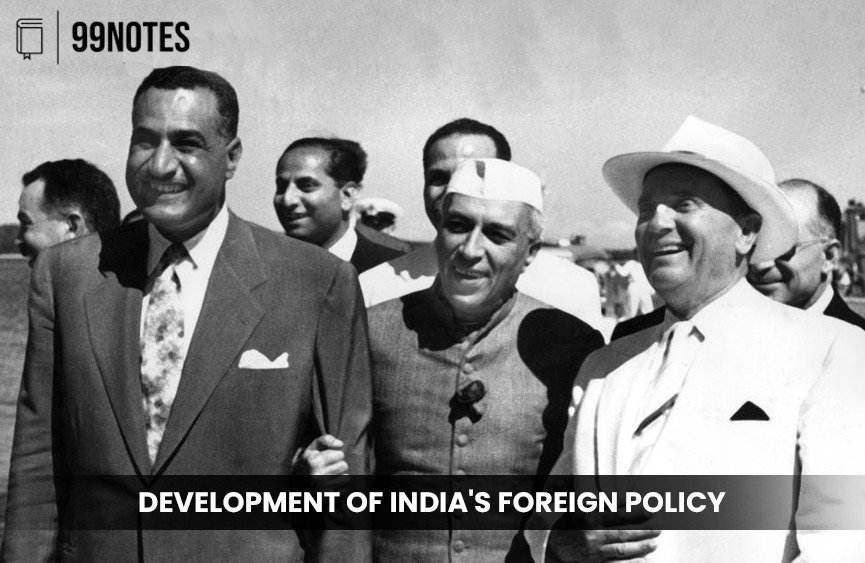
DEVELOPMENT OF INDIA’S FOREIGN POLICY
Foreign policy refers to a country’s strategy in managing its relations with other nations, aiming to safeguard its national interests, maintain global peace, and promote economic growth.

LAND REFORMS IN INDIA
Land reforms refer to a series of measures aimed at redistributing land, improving land ownership patterns, and enhancing agricultural productivity. They involve the regulation of ownership, tenancy, and cultivation of agricultural land

GREEN REVOLUTION IN INDIA
The Green Revolution in India was a major agricultural transformation initiated in the 1960s and 1970s to increase food grain production and ensure food security. The term was first used by William S. Gaud
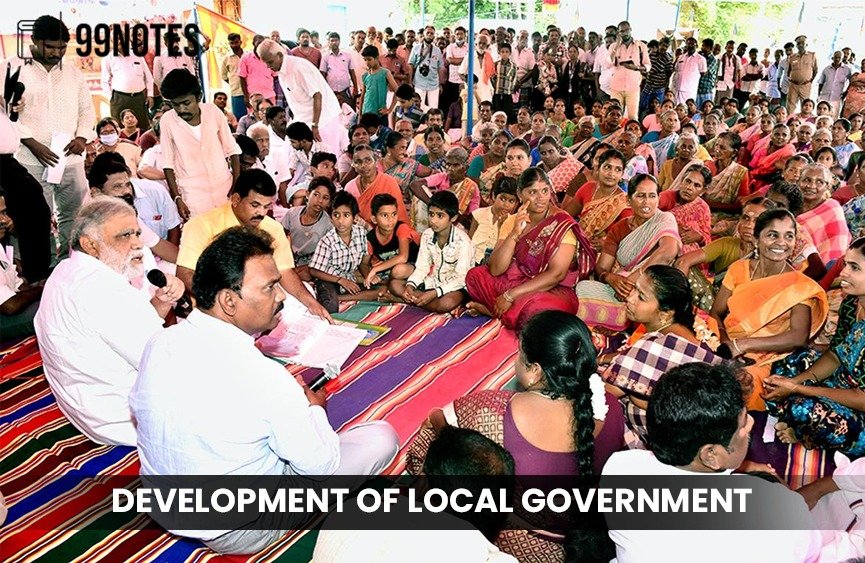
DEVELOPMENT OF LOCAL GOVERNMENT
Local government in India plays a crucial role in ensuring grassroots democracy by providing essential services and allowing citizens to actively participate in decision-making. By bringing governance closer to the people, local bodies strengthen democratic processes

LIBERALIZATION, PRIVATIZATION AND GLOBALIZATION (LPG)
The economic reforms of 1991 marked a turning point in India’s economic policy, leading to the adoption of the Liberalization, Privatization, and Globalization (LPG) framework. Faced with a severe balance of payments crisis

MANDAL COMMISSION AND RESERVATION POLICY
It provides quotas in education, employment, and political representation for Scheduled Castes (SCs), Scheduled Tribes (STs), and Other Backward Classes (OBCs) to ensure equal opportunities and social justice.
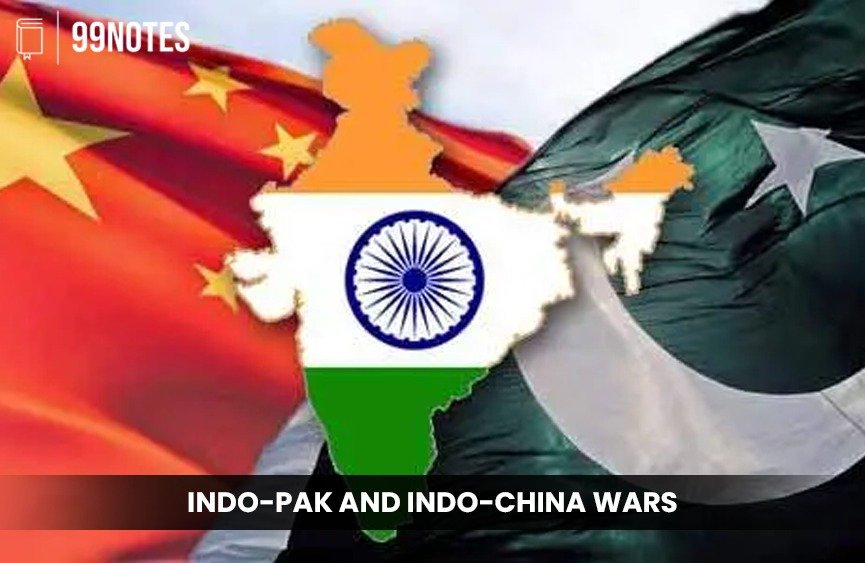
INDO-PAK AND INDO-CHINA WARS
India’s relations with its two immediate neighbours, Pakistan and China, have been marked by historical tensions, territorial disputes, and political complexities. Both countries, while sharing deep-rooted historical ties with India, have been at the centre of India’s foreign policy

INDIA’S NUCLEAR POLICY
India’s nuclear policy has been a key element of its strategic security framework, shaped by the need to balance national security with global peace and stability. Since conducting its first nuclear test in 1974, India has maintained a commitment to a No First Use (NFU) policy
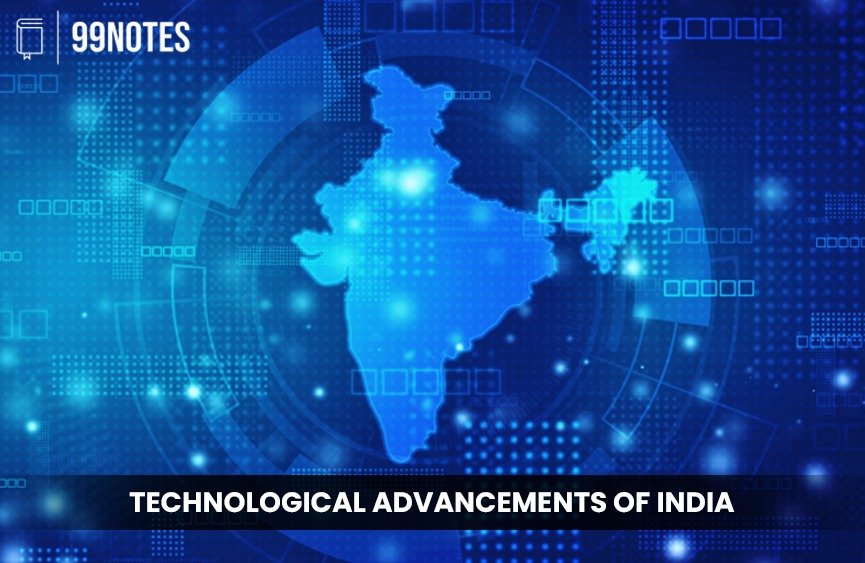
TECHNOLOGICAL ADVANCEMENTS OF INDIA
Technological advancements have played a crucial role in transforming India’s economic, social, and political landscape. Since the early 20th century, India has made significant progress in fields such as information technology, space exploration,
WORLD HISTORY
World history is not a standalone subject in the UPSC Civil Services Exam. However, candidates are expected to have a broad understanding of world history as part of the General Studies paper, which covers Indian and world history, culture, and geography.
In the UPSC Civil Services Exam, world history is typically covered in the context of its impact on India and the world. Candidates should be familiar with the major events, trends, and developments in world history, as well as the ways in which they have shaped the world we live in today.
- Ancient civilizations: Candidates should be familiar with the major ancient civilizations, such as those of Egypt, Greece, and Rome, and their contributions to world history.
- The Middle Ages: Candidates should be familiar with the major events and trends of the Middle Ages, such as the spread of Christianity and Islam, the rise and fall of empires, and the development of feudal systems.
- The Modern Era: Candidates should be familiar with the major events and trends of the modern era, such as the Industrial Revolution, the two World Wars, and the Cold War.
- Decolonization and globalization: Candidates should be familiar with the processes of decolonization and the emergence of the modern nation-state system, as well as the trends of globalization and the interconnectedness of the modern world.
Key topics of world history for UPSC Civil Services Exam include:
The study of world history is important for several reasons, especially for candidates preparing for the UPSC Civil Services Exam.
Here are a few reasons why studying world history is important:
- Understanding the present: World history helps us understand the events and developments that have shaped the world we live in today. By studying world history, you can gain a better understanding of the political, economic, and cultural forces that have shaped the world and continue to influence it today.
- Improving analytical skills: The study of world history requires students to analyze and interpret a wide range of primary and secondary sources, such as historical texts, artifacts, and media reports. This can help you develop critical thinking and analytical skills that are useful in a variety of fields.
- Civil Services Exam: The UPSC Civil Services Exam is a competitive exam in India that is conducted to select candidates for various government positions, including the Indian Administrative Service (IAS), Indian Police Service (IPS), and Indian Foreign Service (IFS). World history is one of the subjects that is covered in the exam, and a thorough understanding of this subject can help you score well on the exam.
- Understanding contemporary issues: Many of the issues and challenges that the world faces today, such as conflict, inequality, and environmental degradation, have their roots in world history. By studying world history, you can gain a deeper understanding of the origins and complexities of these issues and be better equipped to address them.
- Developing a global perspective: The study of world history helps us understand the diverse cultures, societies, and economies that make up the world and the ways in which they are interconnected. This can help you develop a more global perspective and be better prepared to navigate the increasingly interconnected world of today.
By studying these and other topics, candidates can gain a broad understanding of world history and its impact on the world today, which will be helpful in preparing for the UPSC Civil Services Exam.
- Post Independence INDIA UPSC Notes Free Download
- INDIA AT INDEPENDENCE (1947)
- UNIFICATION OF INDIA
- FIRST GENERAL ELECTIONS
- REORGANISATION OF STATES
- DEVELOPMENT OF INDIAN FEDERATION
- ECONOMIC PLANNING AND ITS FAILURE
- DEVELOPMENT OF INDIA'S FOREIGN POLICY
- LAND REFORMS IN INDIA
- GREEN REVOLUTION IN INDIA
- DEVELOPMENT OF LOCAL GOVERNMENT
- LIBERALIZATION, PRIVATIZATION AND GLOBALIZATION (LPG)
- MANDAL COMMISSION AND RESERVATION POLICY
- INDO-PAK AND INDO-CHINA WARS
- INDIA'S NUCLEAR POLICY
- TECHNOLOGICAL ADVANCEMENTS OF INDIA

